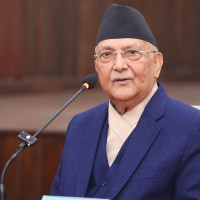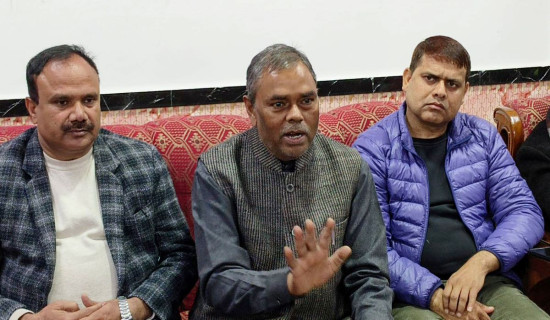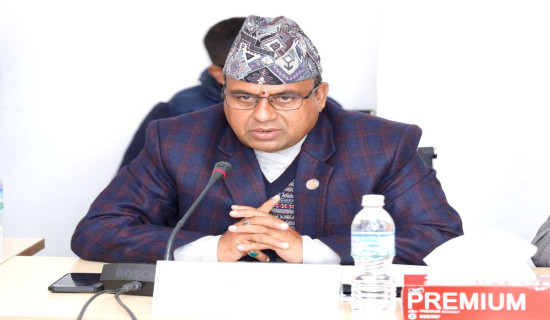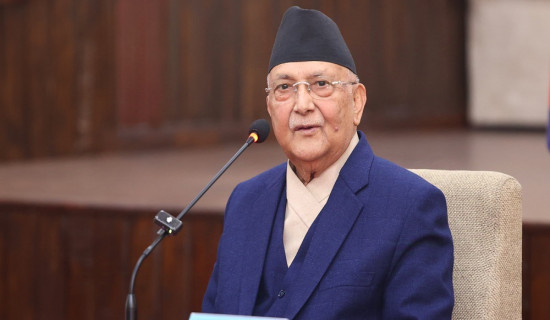- Thursday, 2 January 2025
Politicians, stakeholders push for project implementation under BRI
By Mahendra Subedi, Kathmandu, Dec 30: With the signing of framework for Belt and Road Initiative (BRI) cooperation in Beijing during Prime Minister KP Sharma Oli's China visit earlier in December, the political leaders of the ruling alliance, Nepali Congress and CPN (UML), scholars and stakeholders have said that BRI projects were crucial for Nepal's development and to materialize the aspirations of Prosperous Nepal, Happy Nepali.
At a programme entitled “Advancing Nepal-China Cooperation after the Prime Minister's Visit to China” organized by Nepal-China Friendship Forum, Madan Bhandari Foundation and Girija Prasad Koirala Foundation for Democracy Peace and Development here Monday, the speakers said that advancement of the BRI projects would not only deepen Nepal-China relations but also shift the development trajectory of Nepal.
The speakers mostly spoke the need for building connectivity network adding that it ensures seamless supply of goods and commodities, promoting the economic partnership between the two countries.
The speakers said, under the BRI cooperation, Nepal should explore opportunities for enhanced cooperation across key sectors such as trade, infrastructure, cultural exchange, and regional connectivity.
During the programme, former Foreign Affairs Minister and Nepali Congress leader Sujata Koirala said the BRI was not merely an infrastructure project; it was an ambitious vision for shared prosperity. "It aims to foster connectivity, enhance trade routes, and promote cultural exchanges. For Nepal, a country rich in cultural heritage and natural resources, this initiative presents an extraordinary opportunity to propel its development while ensuring sustainability," said Koirala who is also the Chairperson of Girija Prasad Koirala Foundation.
She stated that timely implementation of the understandings and agreements reached by the leaders of the two countries is important to strengthen political mutual trust, and deepen and expand mutually beneficial cooperation in various fields.
On timely implementation of the BRI projects, CPN (UML) leader Bishnu Rijal echoed on the ideas of Koirala.
Rijal stated that the BRI cooperation framework was the result of the consensus of the national parties.
Likewise, Rijal viewed that the two projects -- Trans-Himalayan Multidimensional Connectivity Network and development of cross border transmission line -- were the most crucial ideas under the BRI projects and called to expedite their advancement process.
Also speaking at the event, Deputy Chief of Mission of Embassy of China in Nepal, Wang Xin, said that the BRI should not be dragged into controversy but should be construed as a win-win partnership for both Nepal and China.
Likewise, Prof Lin Minwang, the Vice Dean of the Institute of International Studies of Fudan University said that the BRI projects should not be impacted by the geopolitics rather Nepal-China should work for the project advancement while referring to the success stories from Laos, Vietnam and other countries.
Similarly, Prof. Huang Yunsong, Vice Dean of School of International Relations, Sichuan University, said that Nepal needs to develop comprehensive connectivity with China adding that existing infrastructure development in Nepal was insufficient, which limits the construction of transit facilities and economic development.
Prof Huang, who was vocal on the narratives of debt trap and issues of geopolitics concerning the BRI, said that through the joint efforts of both sides, the BRI projects could bring tangible benefits to the peoples of both countries and suggested to utilize scientific project management methods to improve project execution efficiency.
Also speaking at the event, Chairman of Nepal-China Friendship Forum Dr Kalyan Raj Sharma said that Nepal and China share immense potential to drive prosperity and enhance the well-being of our peoples through investments in socio-economic development, world-class infrastructure, market integration, cultural exchanges, and robust people-to-people relationships. "Recent collaborations with China have already yielded transformative results.
Policymakers, academicians, diplomats, industry experts, university professors, rights activists and others were present at the event.(RSS)



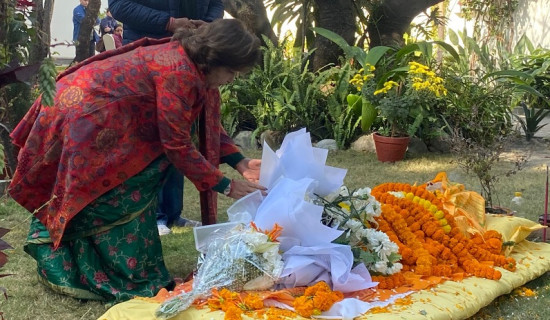
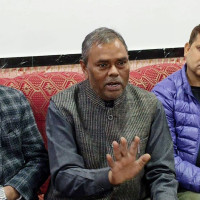
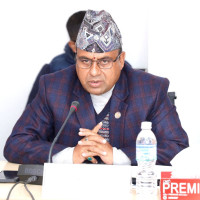
-original-thumb.jpg)

